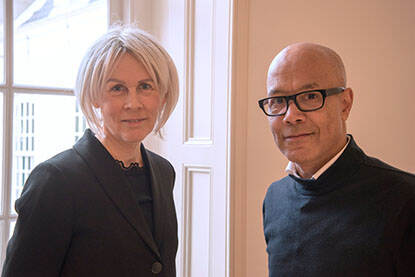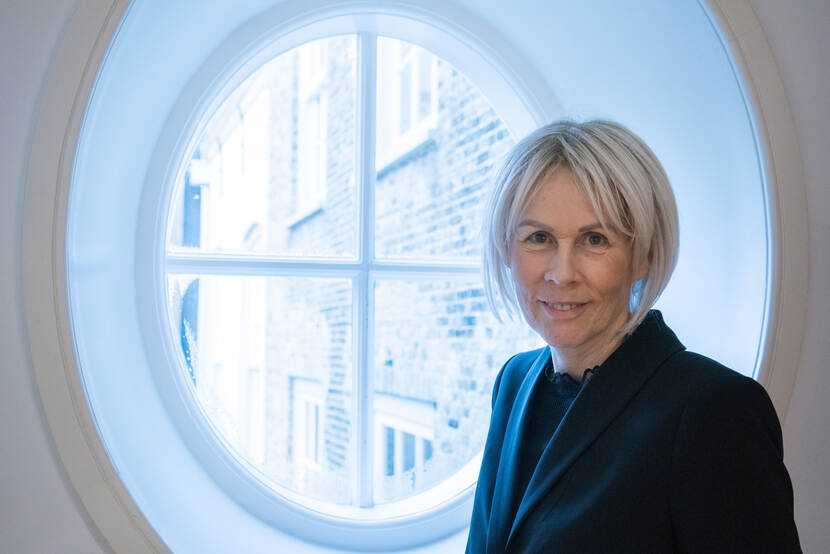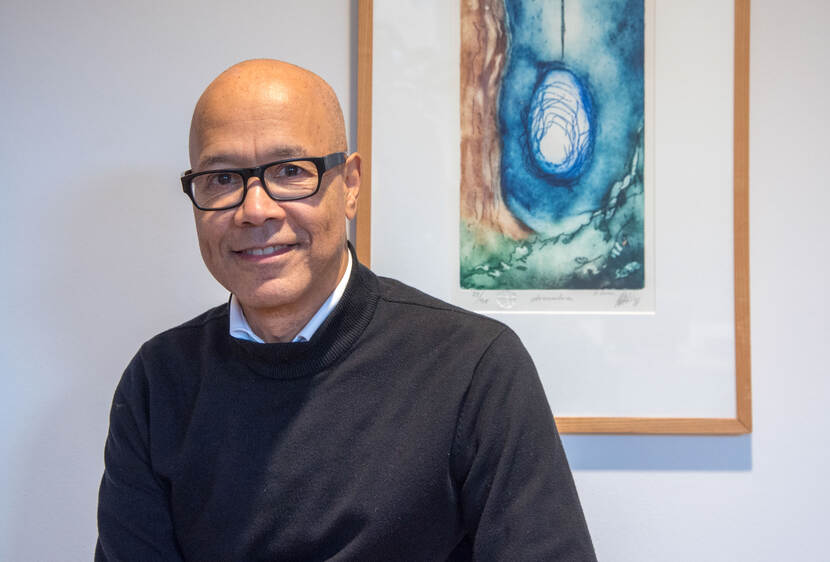Helping society to progress through advisory work
The Netherlands Scientific Council for Government Policy (WRR) welcomed two new Council members on 1 January. Andrea Evers (Professor of Health Psychology at the Leiden University Institute of Psychology and Medical Delta Professor at Leiden University, Delft University of Technology (TU Delft) and Erasmus University) and Maarten Lindeboom (Professor of Economics at Vrije Universiteit Amsterdam (VU Amsterdam), Head of the Economics department at that university and crown-appointed member of the Social and Economic Council of the Netherlands (SER)). They are very much looking forward to their work with the WRR.
A central role for behavioural sciences
“As a health psychologist, I feel I have an important role to play representing the behavioural sciences within the WRR,” says Andrea Evers. “The behavioural sciences can help to resolve complex issues in society. This is not just essential, but also represents a challenge, because resolving these problems still takes a great deal of effort.”
Maarten Lindeboom is an economist. “I also see economics as a behavioural science. But economists look at problems from a different perspective than psychologists or sociologists.” Evers responds: “Ten years ago, you’d never have heard an economist say they were a behavioural scientist.” Lindeboom partly agrees: “That mainly applies to classic economists. But I focus a lot on the labour market and institutions. I try to make it clear how much heterogeneity is really involved in decision-making.”
The multiple benefits of interdisciplinary research
Evers: “WRR members are enlisted for their specific expertise, because in-depth exploration of particular disciplines remains essential. But they also find it important to view those issues from different sides and are also open to those different perspectives. This calls for a culture of respect for and openness to each other, which forces you to collaborate. If you’re open to that, you really do benefit in terms of expanding knowledge.”
During his academic career, Lindeboom has done a lot of monodisciplinary research: “That's an easy way of making your mark in the leading journals. Especially at the start of my career, I was particularly preoccupied by mathematics. But I'm not the kind of economist that looks at things from a monodisciplinary perspective. It can be beneficial to approach a problem from a specific discipline, but never without also taking other disciplines into account. For example, a lot of my research focuses on healthcare. That's impossible if you don't read medical journals. The great thing about doing scientific research is that you reach new perspectives on a subject and can add something new to existing knowledge. What matters to me as an academic is the urgency and importance of research and its relevance to society: what benefits do we gain from the research? The great thing about the WRR is that it forces me out of my comfort zone. Andrea has a much more interdisciplinary background and I find what she does very exciting. For example, I’m eager to find out more about how people make decisions.”
Evers has had interdisciplinary interests throughout her academic career and therefore feels very much within her comfort zone at the WRR. “I've built up quite a distinctive profile over the years. By adopting a slightly different path from other psychologists, I've been able to do some pioneering research. What I find attractive about the work at the WRR is that it also enables you to offer policymakers, politicians and the wider public new perspectives on subjects that have been starved of the attention they need and to involve certain vulnerable groups in that. You can use those new perspectives to make disciplines more complete and put forward innovative solutions. Something else that’s special here is the fact that you have to be willing to expose your vulnerability. After all, everyone reads what you write and gives you feedback on it.”
Bridge between science and societal problems
“The combination of scientific research and applying the results of it is part of my DNA,” says Evers. “Fundamental research in my discipline is fascinating, but I personally always also like to put ideas into practice. It keeps you on your toes. At the WRR you can influence policy with your research, raising it to a higher societal level. That really appeals to me. To do it, you need complementary knowledge: statistics based on a survey for example, but also conversations with people. In this, you face the challenge of considering how our reports can help people develop a framework for action. Far too often, insufficient thought is given to how policy will actually land in practice. For every policy rule, a behavioural scientist should be brought on board to help ensure that it can be implemented. Communication science is also crucial in this: how do you communicate policy measures? How can you make your policy concrete so that it really reflects what citizens are experiencing?”
Lindeboom also sees it as his responsibility as a professor to help society to progress or at least to make a contribution to it: “Of course, you can do that by means of nice theoretical articles, but the WRR really does enable you to think about major societal issues and help to resolve them. The issues that I'm interested in include such problems as unemployment, the ageing population – what factors play a role in it and how are institutions responding? – incapacity for work, system reforms and the evaluation of them – how can these systems be fine-tuned in order to ensure that benefits reach the right people? I'm also taking a growing interest in the early years of life and how these influence human capital across the entire life-cycle.”
An inspirational first Council meeting
Lindeboom: “We had our first meeting of the Council this morning. It was great fun and very inspiring. Everyone contributes their own ideas and there’s a shared sense of urgency. That's what brings us together. For me, the WRR’s strength lies in the complementary nature of its Council members. I've also noticed that we have an excellent secretariat here: just like the one at the SER. That's why I’m very much looking forward to working together with the staff and other Council members. Many of them have a different perspective on issues and I can learn from that. One of the key issues that I’d like to explore is inequality within society. My parents come from Suriname and were always stressing the need for education. I’m very much aware that not everyone is as fortunate as I am. This inequality is not right, from the perspective of justice, but neither is it from the perspective of efficiency: that's why it's important to minimise the inequalities between people. There should be a focus on prevention at a much earlier stage. Ultimately, what happens in your early years will shape what happens later in life.”
Evers was involved in the contribution made by the Royal Netherlands Academy of Arts and Sciences (KNAW) to the coronavirus-related publications issued by the WRR and other advisory councils. Based on that experience, she adds: “The focus on the long term is also something characteristic of the WRR. What's more, we have the opportunity to explore a question in depth here. That is something that’s rarely possible in today's busy world. It's also great to be able to raise issues of your own. For example, I'm very interested in exploring the issue of irrationality and how you can help policymakers to become aware that we all exhibit irrational behaviour and how policy can take account of that. We often take it for granted that the world thinks rationally and that people are self-reliant, but behavioural sciences teach us that this isn't the case. In stressful situations, people make different choices. And during this morning's Council meeting, there were also all kinds of issues raised where I thought: that's my area of expertise. It's great to be able to make a valuable contribution to that!”


